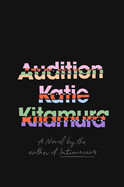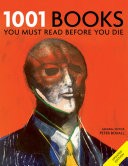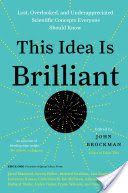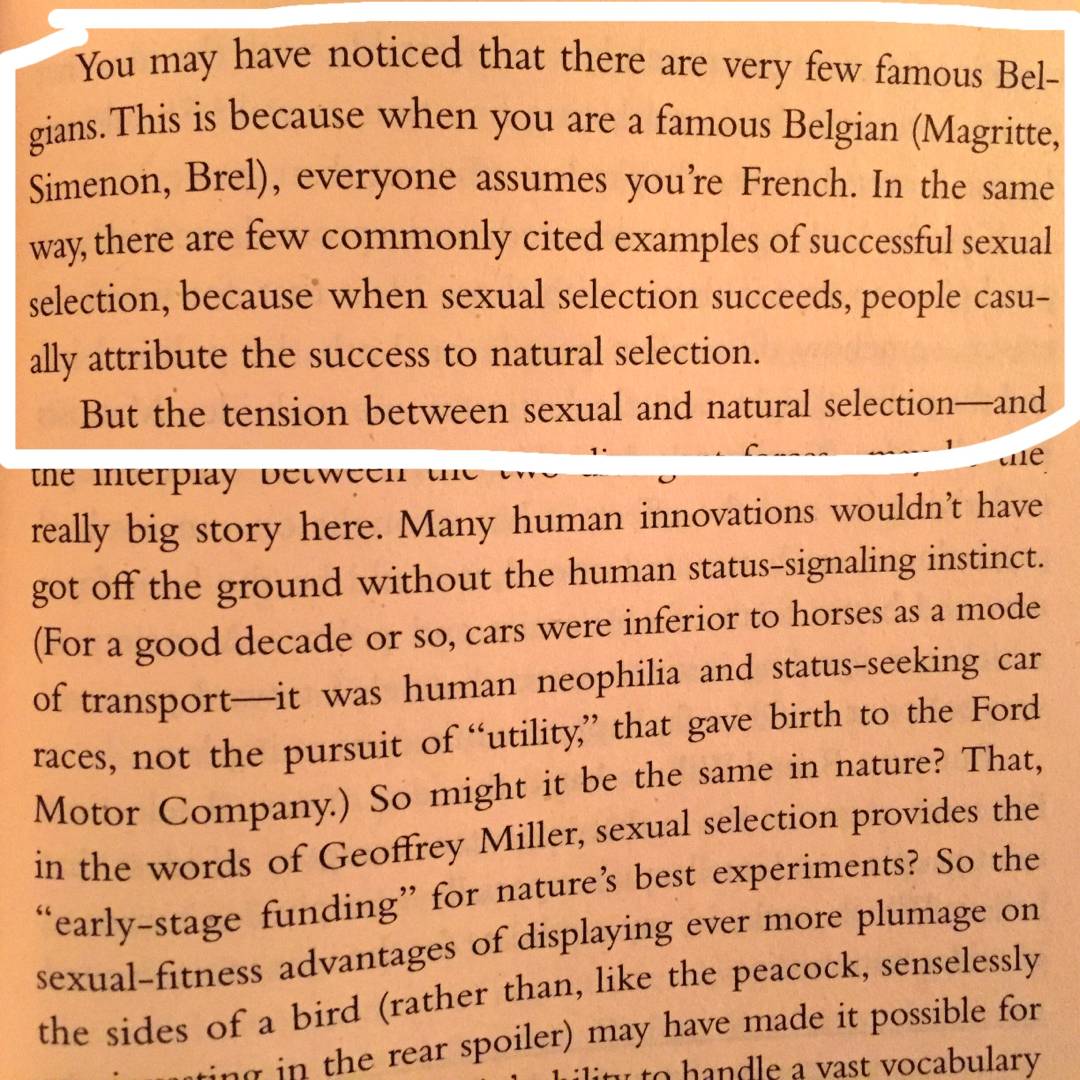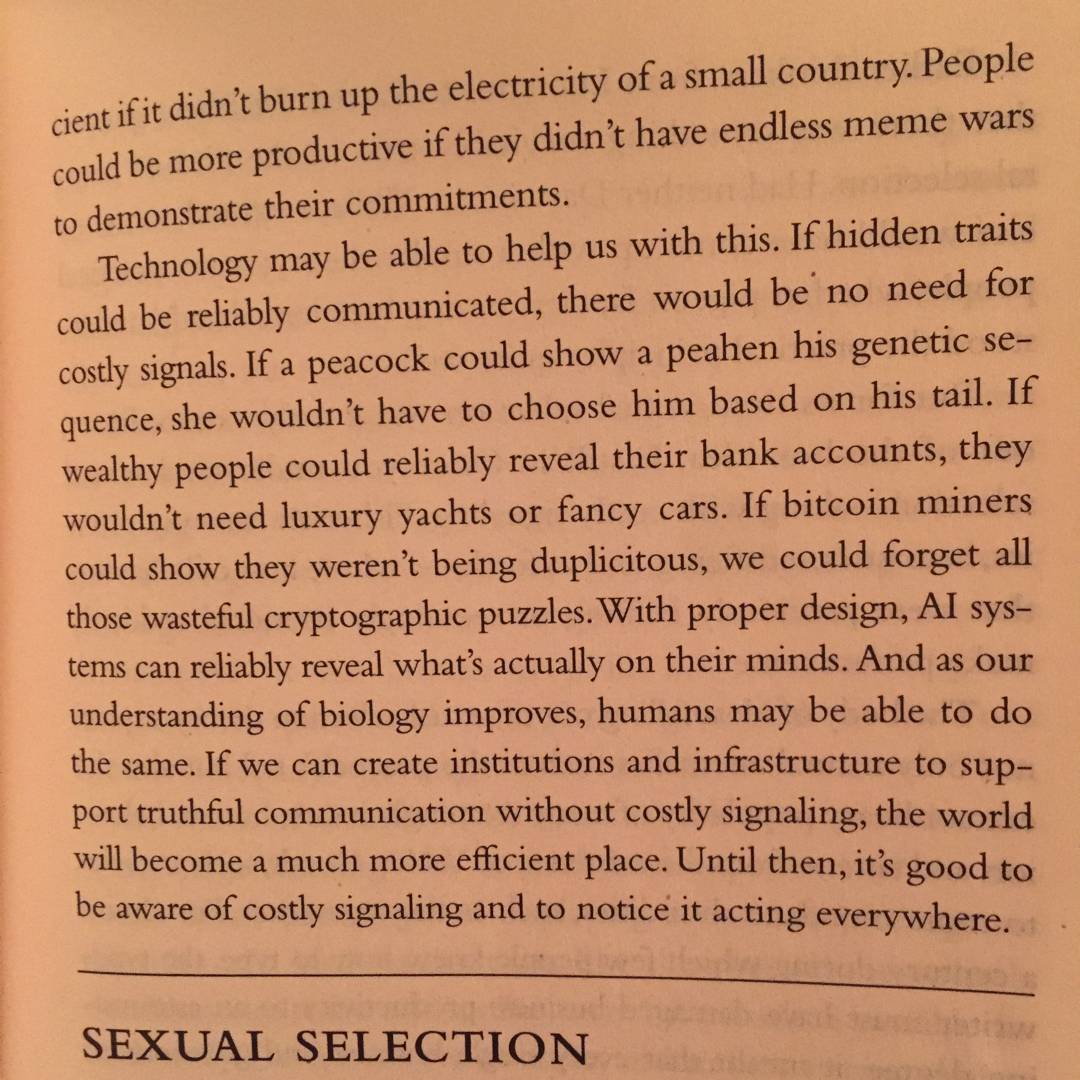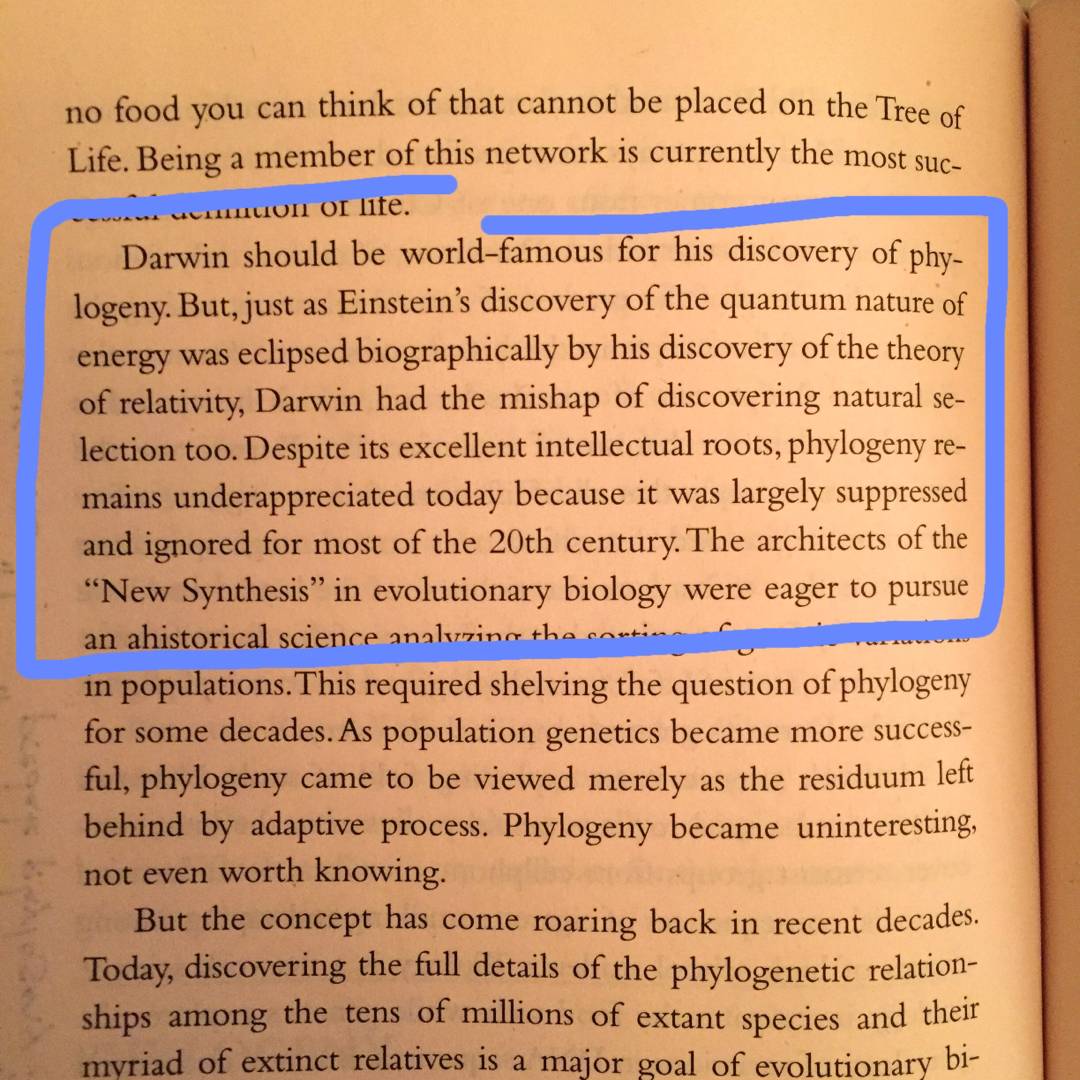
Didn‘t Darwin have other examples of phylogenic graphs—for example the tree of Indo-European languages? There must be other examples.
TimSpalding “Possibly the first non-Biblical use, and the first to show full family relationships rather than a purely patrilineal scheme, was that involving family trees of the classical gods in Boccaccio's Genealogia deorum gentilium ("On the Genealogy of the Gods of the Gentiles"), whose first version dates to 1360.” Boccaccio FTW! 6y
18 likes1 comment







